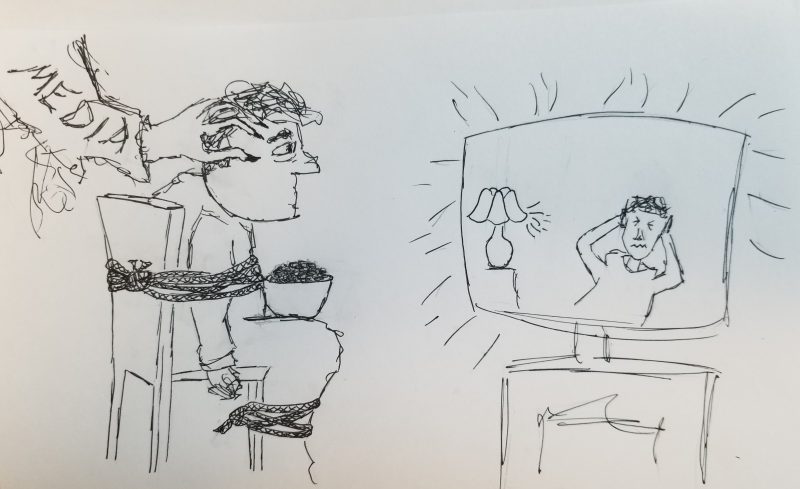The media characterizes schizophrenia by portraying individuals as violent, unpredictable, and crazy, driven to madness by the voices in their own heads, a creation of their own doing. Many psychological disorders get merged together to form a character that will be the most entertaining. And while this may just be a movie or an episode of a T.V. show, it becomes quite easy to incorporate that false media driven perception into our notions of schizophrenia.
Before continuing to read, wipe away any preconceived notions of schizophrenia. Forget it all. This will allow for a blank slate to build an understanding of schizophrenia rather than falsehoods given to us as entertainment.
Okay, lets begin.
The Mayo Clinic reports that there are more than 200,000 cases of Schizophrenia in the United States each year. Already that is much more prevalent than one would think.
Not every case of schizophrenia is characterized by just “hearing voices,” while that is a symptom. Other common symptoms include delusions (false beliefs not based in reality), disorganized thinking and speech (impaired communication presented as rapid speaking, rambling, “word salad,” leading to incoherent speech thought of as a result of disorganized thoughts), other cognitive symptoms (memory loss or confusion), abnormal motor behavior (a child-like-silliness, aggression, unresponsive, compulsive, or excessive movement), and more generally other negative symptoms (lack of hygiene, lack of emotion, socially withdrawn).
Remember, every case of schizophrenia is unique, and a given individual may or may not have a given symptom, and the frequency and severity of that symptom is also varied.
Scientists believe that there are a variety of causes that lead to schizophrenia including genetic, environmental, and brain chemistry factors.
Genetic influences revolve around a person’s genetic code that is unique to them. It is the blueprint for everything the body can do. However, if the is a change or mutation in the blueprint at a particular location implicated in schizophrenia, that could cause or increase the likelihood of someone developing schizophrenia. It has been well documented that schizophrenia runs in families, however, not every case can be linked to a family member who has the disorder; therefore there must be other factors.
The development of schizophrenia has been strongly correlated with problems that may arise during development in utero. This may include, but is not limited to exposure to viruses or infection, malnutrition, or other problems during birth. After birth, there are still other environmental factors that can play a role, such as psychoactive drug use or other psychosocial factors.
Even still, differences in brain chemistry contribute to schizophrenia. Neurotransmitters such as dopamine, serotonin, and glutamate play chief roles. Current pharmaceuticals and medicines target symptoms by targeting various aspects involved with the dysregulation in brain chemistry. But since there are many different effectors, and vast array of symptoms which present at different times with different severity, it makes it extremely hard for doctors and scientists to identify or prescribe a particular medicine that will do more than treat the given symptoms.
Schizophrenia is a very complicated disorder to say the least. Hopefully after reading this short post, you are able to erase some of the preconceived notions and replace them with the reality of the disorder.
Sources:
https://www.nimh.nih.gov/health/topics/schizophrenia/index.shtml#part_145429
https://www.mayoclinic.org/diseases-conditions/schizophrenia/symptoms-causes/syc-20354443
